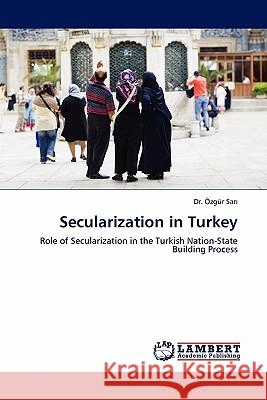Secularization in Turkey » książka
Secularization in Turkey
ISBN-13: 9783845402017 / Angielski / Miękka / 2011 / 76 str.
Secularization is a cement of the Turkish modernization and nation-state building process. Westernization and modernization were accepted side by side with secularization and different from other examples of secularization, Turkey developed an original definition and a process towards secularization. In the Turkish model, Islam was taken under state control as a result of historical and social developments. However, not only being controlled, Islam also has been manipulated by the state to reproduce the hegemonic statist ideology and to maintain the legitimacy of the state's sovereignty over its subjects. These practices produce a contradictory understanding of laicism and a controversial position of the state in its relation to Islam. The difference between the constitutional definition of laicism and the institutional practices and policies which are non-laic according to the state's definition of laicism, makes the masses more close to religion instead of secularism. Using only one religion (Islam) and one sect (Sunni-Hannifin) to strengthen the Turkish state's legitimacy can damage the sovereignty of the state in the perception of the non-Muslim and non-Hannifin subjects.
Secularization is a cement of the Turkish modernization and nation-state building process. Westernization and modernization were accepted side by side with secularization and different from other examples of secularization, Turkey developed an original definition and a process towards secularization. In the Turkish model, Islam was taken under state control as a result of historical and social developments. However, not only being controlled, Islam also has been manipulated by the state to reproduce the hegemonic statist ideology and to maintain the legitimacy of the states sovereignty over its subjects. These practices produce a contradictory understanding of laicism and a controversial position of the state in its relation to Islam. The difference between the constitutional definition of laicism and the institutional practices and policies which are non-laic according to the states definition of laicism, makes the masses more close to religion instead of secularism. Using only one religion (Islam) and one sect (Sunni-Hannifin) to strengthen the Turkish states legitimacy can damage the sovereignty of the state in the perception of the non-Muslim and non-Hannifin subjects.











